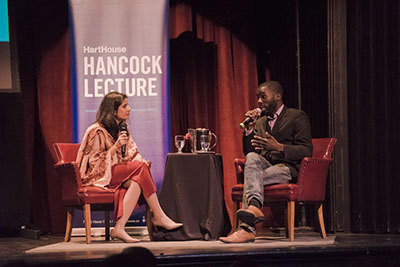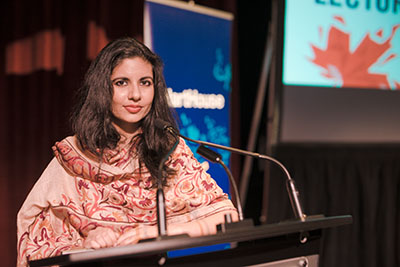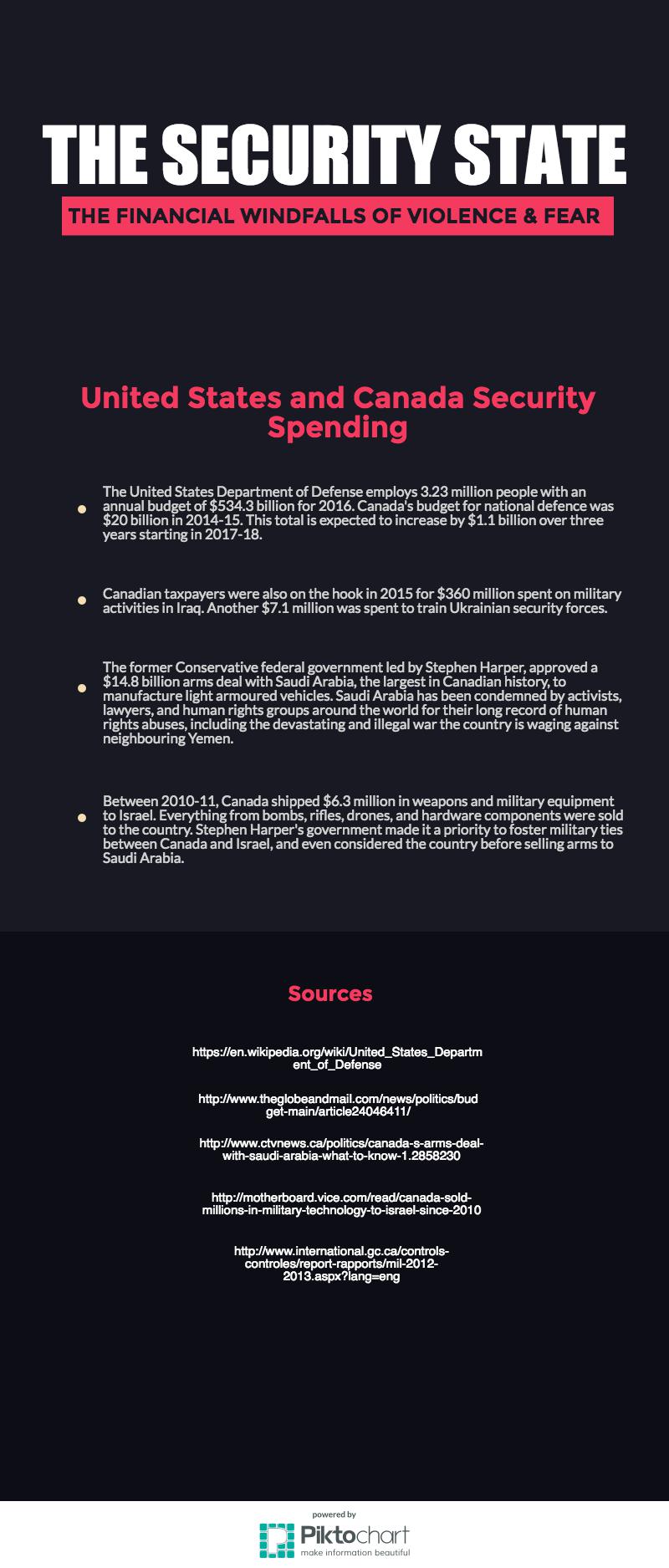
BY JAKE HRIBLJAN
While some Canadians may find the niqab an infringement on Canadian culture, legal scholar and activist Azeezah Kanji sees the recent election debate as one of the latest examples of a deeply entrenched system of institutionalized racism.
Two weeks ago, University of Toronto’s Hart House hosted its annual Hancock Lecture, given by Kanji, who argued the pervasiveness of Islamophobia in a post 9/11 world is the result of a ruling structure built on colonialism.
“It is too easy to project racism onto other times or other people,” said Kanji. “It is far more difficult to confront the normalized race thinking that under herds the growth of the national security state that is now a part of our everyday lives.”
Kanji cites the $92 billion spent on national security in the decade after 9/11, the expansion of government powers in areas of surveillance with measures such as Bill C-51, and the proliferation of broad and vague offenses which can be considered ‘terrorist acts’, as examples of racism serving an institutional purpose in service of the state.
“We must ask ourselves, how has the bearded, turbanned man become the pragmatic figure of the terrorist? Even though according to internal CSIS documents recently described in the Toronto Star, right-wing and white supremacist violence is actually a greater security threat than violence by Muslims,” Kanji said.
The documents to which Kanji referred to cited research studies that determined 17 per cent of ‘lone wolf’ attacks worldwide were motivated by right wing, white supremacist ideology, while 15 per cent were motivated by radical Islam.

Kanji also pointed to the disproportionate coverage of the anniversary of the Boston marathon bombing compared to the more fatal shooting in the Washington Navy Yard, which happened in the same year, yet the latter received far less coverage.
“Why were the two Muslim men who plotted to blow up a VIA Rail train labelled terrorists, while the non-Muslims who planned a mass shooting in Halifax on Valentine’s Day not described as terrorists by then Justice Minister Peter McKay but rather as ‘murderous misfits’ whose supposed lack of a ‘cultural motivation’ saved them of the stigma of being known as terrorists?” asked Kanji.
These examples and many others outline a history of governmental institutions using the barbaric ‘other’ as a form of social control and manipulation, be it in the form of aboriginal savages in early colonial history, African American slaves in the 19th century, Japanese- Canadians after Pearl Harbor, or Muslims in the West today, argues Kanji.
Kanji argues that this race manipulation is then used to extended our sense of national security beyond our borders and to the borders of other nations with other similarly identifiable (read: white) peoples such as Americans, or more recently the French, as seen in the “Je suis Charlie” or “Pray for Paris” campaigns.
“[This] identification, which was conspicuously absent for victims of bombings in Beirut or Istanbul or Kunduz or so many other places populated with people who are not considered ‘us’ but ‘them’,” stated Kanji.
This disconnect of identification is not only manifested abroad but at home as well, says Kanji.
“Not all communities or individuals within Canada are included in the imagined community of the nation and its national security,” said Kanji. “And the threat posed by these internal enemies is used to justify the general erosion of rights and freedoms.”
RELATED STORIES:
- Doctors Without Borders hospital bombing death toll hits 30
- New Report of U.S. -Made Cluster Bomb Use by Saudis in Yemen
- Death by drone strike, dished out by algorithm
Kanji cited the many tragic ironies of this race manipulation, such as between 1941-1949 when the Canadian government forcibly removed Japanese-Canadians from their jobs and homes and moved them into internment camps, many of which were former residential schools, to the claim of Alberta oil sands being ‘ethical oil’ and that environmentalists and First Nations people who resist its production and expansion are then supporters of ‘conflict oil’ in the Middle East.
Roughly 200 people attended the lecture, which was moderated by journalist and activist Desmond Cole. Kanji and Cole took questions from the audience, which ranged from how the military industrial complex influences race manipulation among the masses, to how humanity might end the cycle of race exploitation.
“In terms of Canada’s benefits from securitization, we’ve seen the arms deals that are being signed with Saudi [Arabia] and Kuwait, both are participating in this horrendous bombing mission in Yemen, which has been responsible for so many civilian casualties,” said Kanji. “It’s definitely important to look at who is benefiting financially from the economics of the War on Terror.”
Kanji and Cole both agreed discussion and persistence are the best attempts at breaking this cycle of race manipulation and violence.

